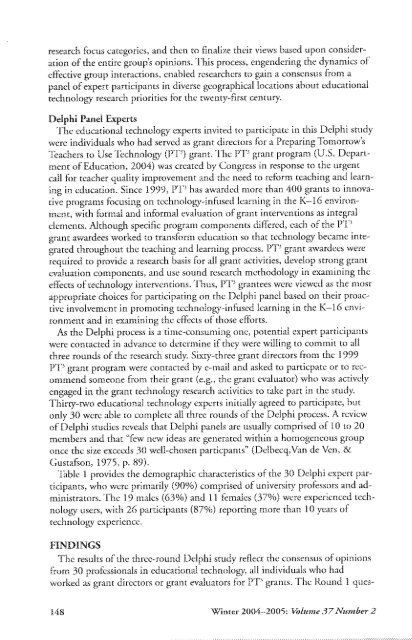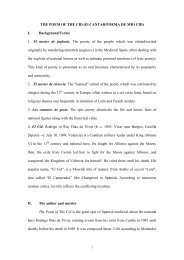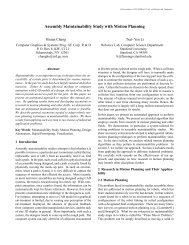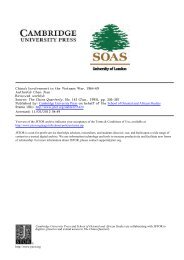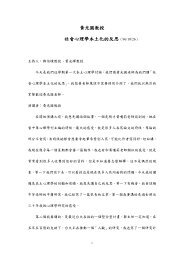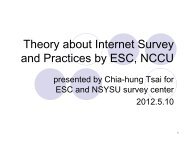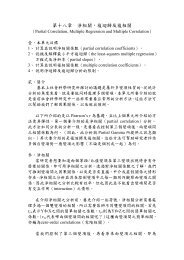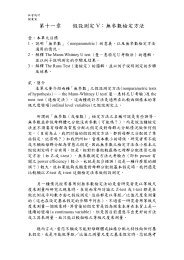Research Priorlties 'in Educatlonal Technology: A Delphi Study
Research Priorlties 'in Educatlonal Technology: A Delphi Study
Research Priorlties 'in Educatlonal Technology: A Delphi Study
You also want an ePaper? Increase the reach of your titles
YUMPU automatically turns print PDFs into web optimized ePapers that Google loves.
esearch focus categories, and then to finalize their views based upon considerationof the entire group's opinions. IThis process, engendering thie dynlamics ofeff-ective group interactions, cnabled researchers to gain a consensus from apanel of expert participanits in diverse geographical locations about cducationaltechnology research priorities for the twevnty-first century.<strong>Delphi</strong> Patiel ExpertsI'he educational technology experts inlvited to participatc in this <strong>Delphi</strong> studywere individuals whio had served as grant directors for a Preparing Tomnorrow'sTeachers to TUse JIchnology (PT3) grant. '1'he PT grant program (U.S. Departmnentof Education, 2004) was created by Congress in response to the urgentcall for teacher quality improvemeent and the need to reform teachiing and learningin cducation. Sinice 1999. P1'3 has awarded nmore thani 400 grants to inniovativeprogramis focusinig on technology-infused learninlg in the K-l6 environinent,with formnal and informal evaluation of grant interventions as integralelemiients. Although specific program componenits differed, each of the P1ITgrant awardees worked to transform education so that technology became integratedthroughout the reachling and learning process. PT' grant awardees wererequiredt to provide a research basis for all grant activities, develop strong grantevaluation components, and use sould research methodology in examining theeffects of technology interventions. [lus, PT 3 grantees were viewecd as the mostappropriate choices for participating on thc <strong>Delphi</strong> panel based: on their proactiveinvolveincnr in promoting technolog,-infused learning in the K-16 environmrentand in examininig the cifects of those efforts.As the <strong>Delphi</strong> process is a time-consuminlg ole potential expert participantswere contacted in advanice to deterrmine if they were willing tO commit to allthree roundls of the research stuidy. Sixty-three grant directors fromn the 1999PT' grant program were contacted by e-mnail and asked to particpate or to rccommnendsomeone friom their grant (e.g., the grant evaluator) who was activelyengaged in the grant techniology research activities to take part in the studv.Thirty-two educational technology experts initially agreed to participate, loutonlv 30 wcrc able to complete all three rounds of the Lelphi process. A reviewof l<strong>Delphi</strong> studies reveals that <strong>Delphi</strong> panels are uisually comnprised of 10 to 20members and that "few n1ew ideas are generated withini a homiogeneous grouponce the size excecds 30 well-chosen particpanits" (Delbecq.Van de Ven. &Gustafson, 1975, p. 89).' able 1 provides the demographic characteristics of the 30 <strong>Delphi</strong> expert participants,who wcre primarily (90%) comprised of universitv professors and admitnistrators.The 19 males (63%) and II females (37%) were experienced technologyusers, with 26 participants (87%) reporting tnore than 10 years oftechnology experience.FINDINGSThe results of the three-round <strong>Delphi</strong> study reflect the consenisus of opirnionsfrom 30 professiornals in educational techlnology, all individuials who hadworked as grant directors or gratnt evaluators for PT' grants. The. Rounid 1 ques-148Winter 2004--2005: Vo4lu,ae 37 Nunzber 2


